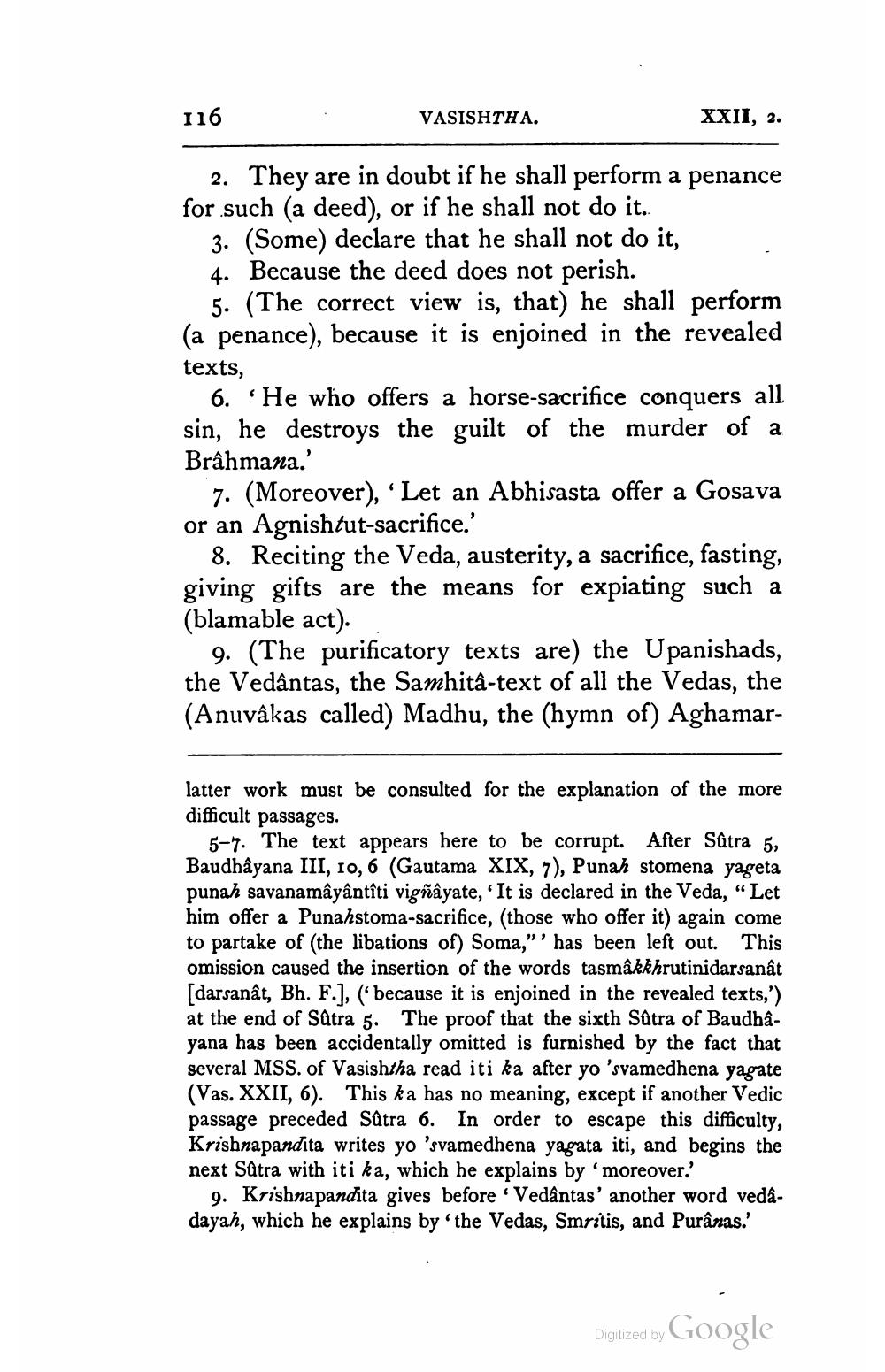________________
116
VASISHTHA.
XXII, 2.
2. They are in doubt if he shall perform a penance for such (a deed), or if he shall not do it..
3. (Some) declare that he shall not do it, 4. Because the deed does not perish.
5. (The correct view is, that) he shall perform (a penance), because it is enjoined in the revealed texts,
6. He who offers a horse-sacrifice conquers all sin, he destroys the guilt of the murder of a Brâhmana.'
7. (Moreover), ‘Let an Abhisasta offer a Gosava or an Agnishtut-sacrifice.'
8. Reciting the Veda, austerity, a sacrifice, fasting, giving gifts are the means for expiating such a (blamable act).
9. (The purificatory texts are) the Upanishads, the Vedântas, the Samhita-text of all the Vedas, the (Anuvâkas called) Madhu, the (hymn of) Aghamar
latter work must be consulted for the explanation of the more difficult passages.
5-7. The text appears here to be corrupt. After Sûtra 5, Baudhayana III, 10, 6 (Gautama XIX, 7), Punah stomena yageta punah savanamâyântîti vigñâyate, It is declared in the Veda, "Let him offer a Punahstoma-sacrifice, (those who offer it again come to partake of the libations of) Soma,"' has been left out. This omission caused the insertion of the words tasmakkhrutinidarsanat Tdarsanât, Bh. F.), (because it is enjoined in the revealed texts,') at the end of Satra 5. The proof that the sixth Sätra of Baudhayana has been accidentally omitted is furnished by the fact that several MSS. of Vasishtha read iti ka after yo 'svamedhena ya gate (Vas. XXII, 6). This ka has no meaning, except if another Vedic passage preceded Sûtra 6. In order to escape this difficulty, Krishnapandita writes yo 'svamedhena yagata iti, and begins the next Satra with iti ka, which he explains by 'moreover.'
9. Krishnapandita gives before. Vedântas' another word vedadayah, which he explains by the Vedas, Smritis, and Purânas.'
Digitized by Google




